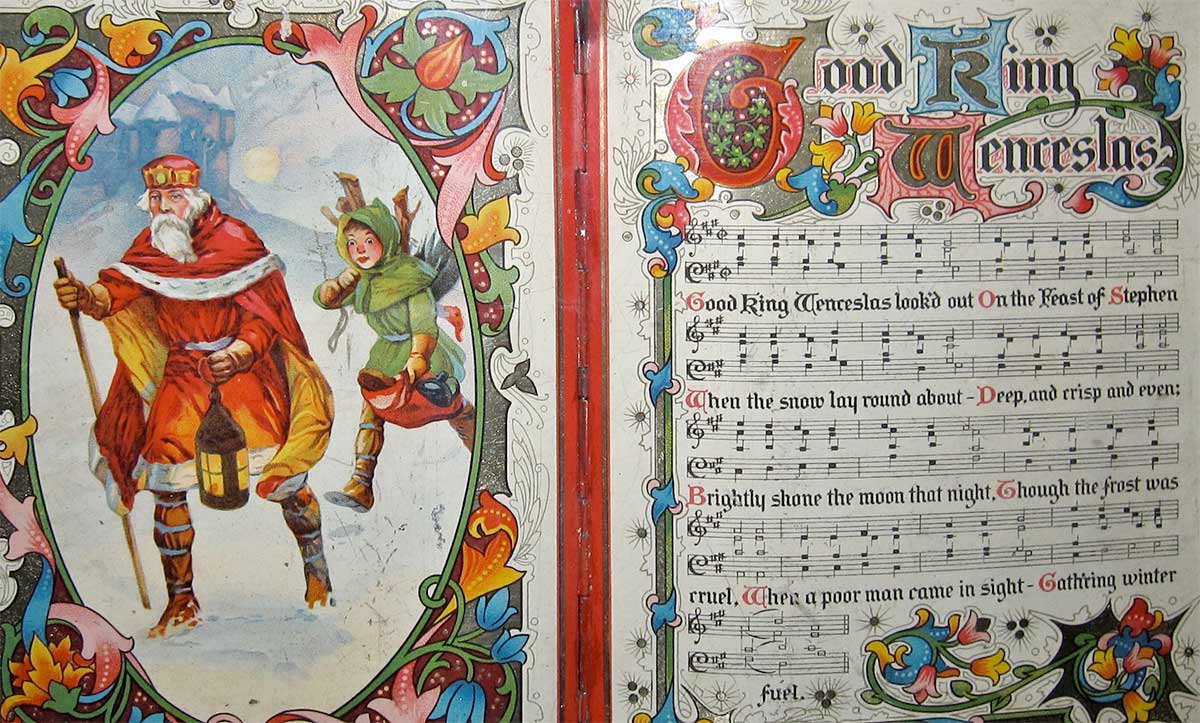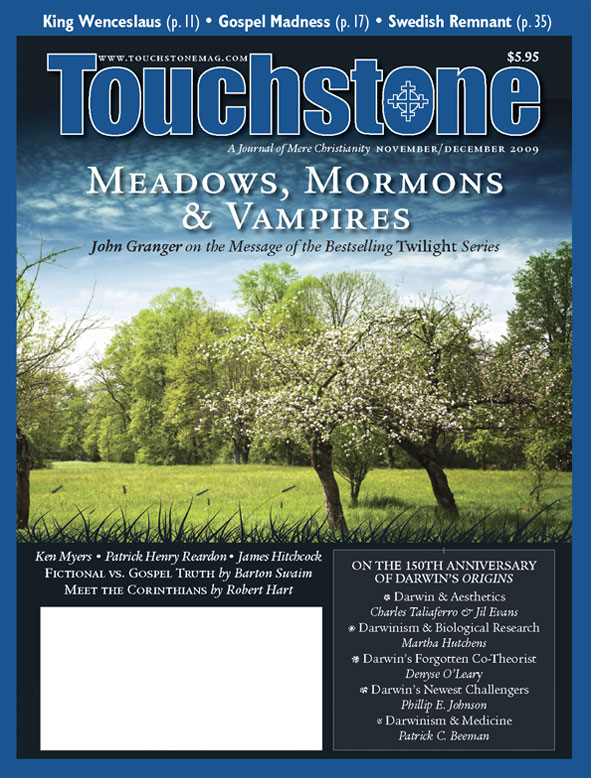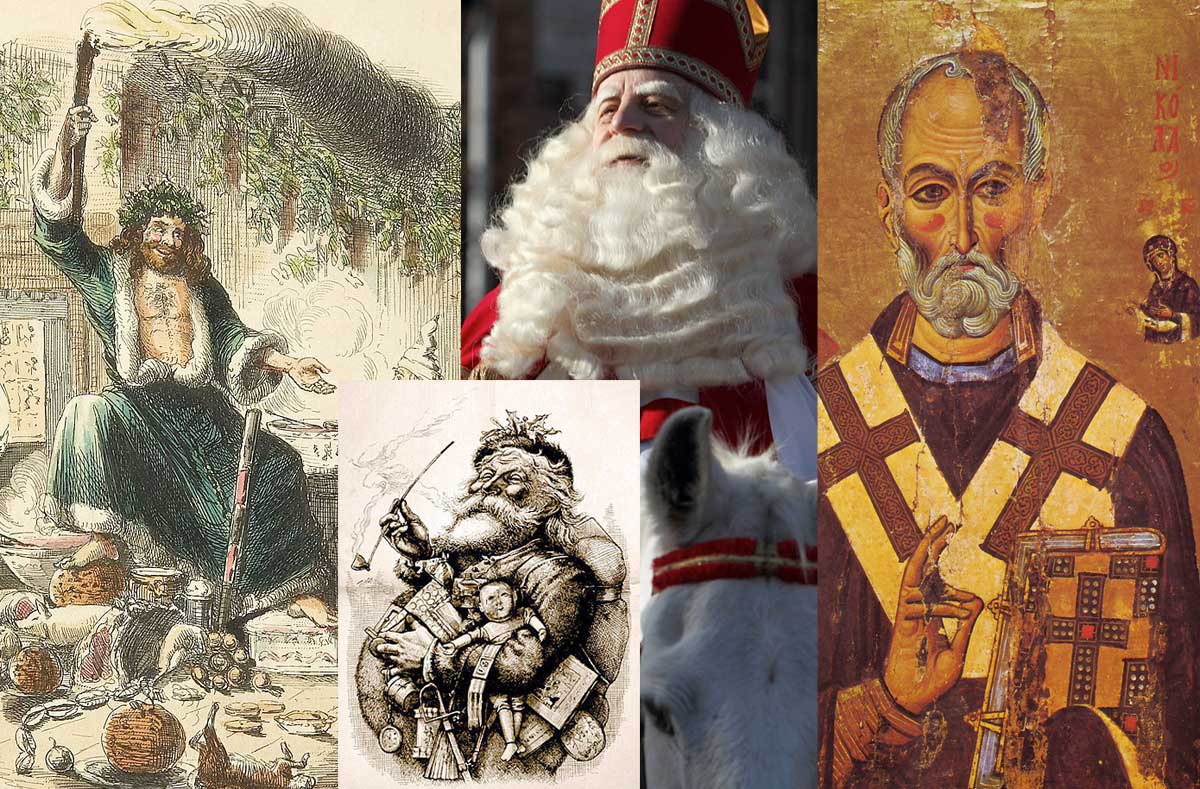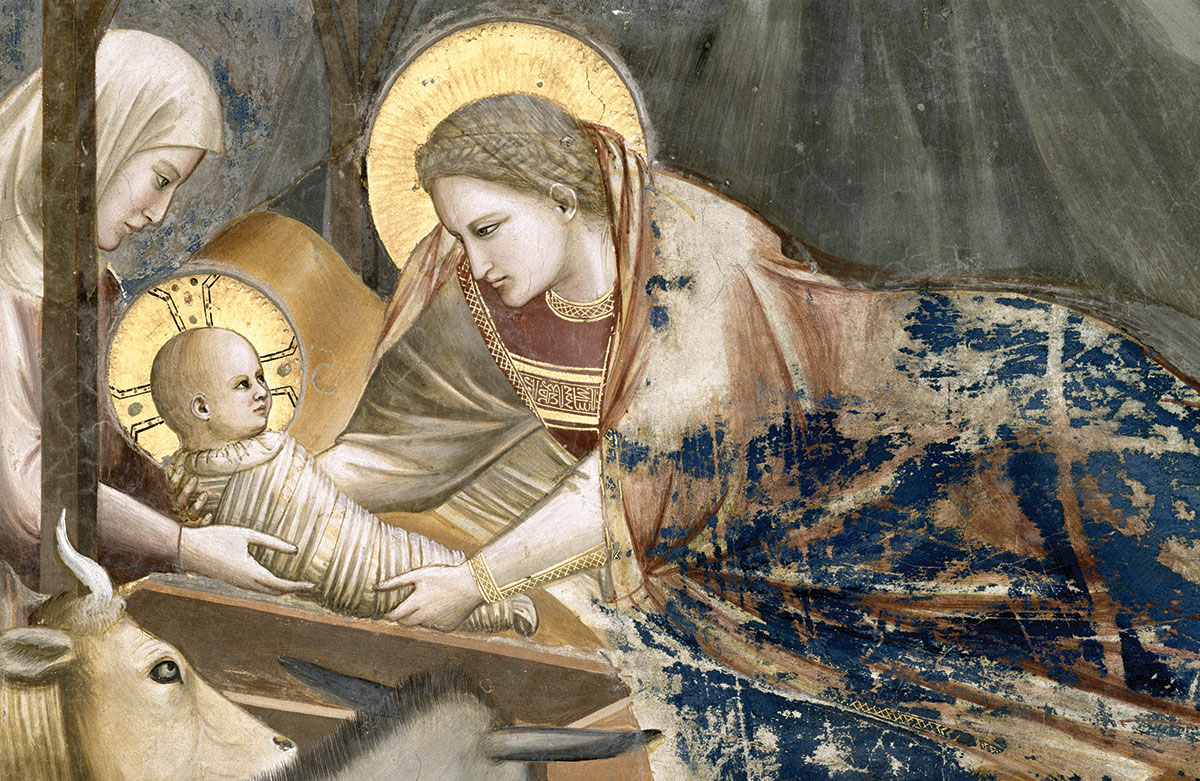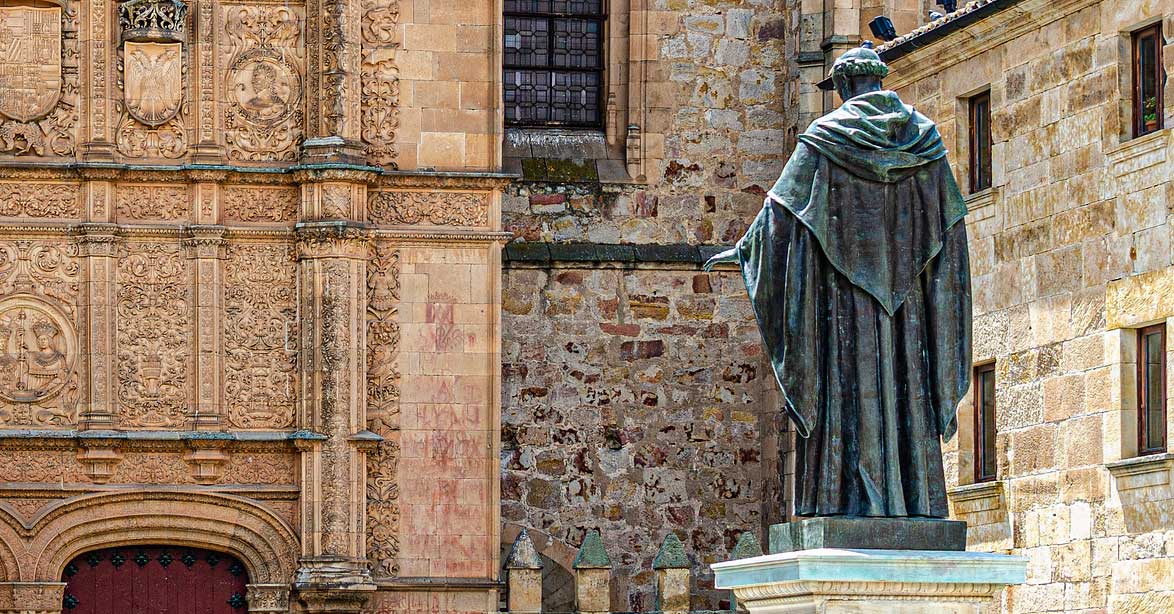View
Looking for Wenceslaus
Michael H. Baum on the Real Men Behind the Christmas Carol
"Good King Wenceslas" is one of those traditional Christmas carols that are so familiar they're virtually unknown. If, amid the musical cacophony that marks the modern Yule season, we ever hear the words at all, we seldom get further than the good king looking out on the feast of Stephen, and even that line has been the subject of popular parody. Over the years, some critics have subjected the lyrics to rather severe slurs, such as "doggerel," "bathos," and "on the horrible side."
Perhaps the critics, along with the rest of us, should put aside preconceptions and listen better. What we might discover is a sincere if simple story of a real-life saint, written by a man one could arguably call a modern saint, that combines a strong spiritual message for the Nativity season with a subtle sense of humor.
Kindred Spirits
King Wenceslas was a real person, though not a king and not really named Wenceslas. He was Václav (pronounced Vaht-slaf), duke of Bohemia, and he lived from about 907 till his martyr's death in about 935. At a time when paganism was fighting a losing but vigorous battle against Christianity, Václav was raised a Christian because his grandparents had been converted by Sts. Cyril and Methodius, the "apostles to the Slavs." Though his brief reign was marred by rebellion and foreign invasion, Václav was famous for his piety, asceticism, and compassion towards the poor. His younger brother plotted to take the throne and had Václav murdered on his way to church on the feast of Sts. Cosmas and Damian. Miracles almost immediately began to be attributed to Václav. He is the patron saint of the Czech people and the Czech Republic.
The writer of "Good King Wenceslas," John Mason Neale, had a lot in common with his subject. They both lived short lives: Neale was only 48 when he died in 1866 of a lifelong lung ailment. He, too, devoted his life to the poor. He served as Warden (director) of Sackville College, a shelter for the elderly poor in a village poetically named East Grimstead, from 1847 until his death, and in 1855 he founded the Sisters of St. Margaret, a charitable order of Anglican sisters that survives to this day. For his activities with this order and with the "Oxford Movement," which sought to restore traditional practices and doctrines in the Anglican church, he was pilloried as a "papist" and subjected to attacks—on at least one occasion, physical—from both outside and within the church.
But Neale's chief occupations were scholarly and literary. He founded and contributed to religious journals, published scores of books (including a few popular novels), translated and wrote about the early church fathers and the liturgies of the Eastern Church (in the process mastering a dozen or so languages, including Old Slavonic), corresponded with key Orthodox clerics, including Metropolitan (later Saint) Philaret of Moscow, and—seemingly in his spare time—wrote well over a hundred hymns. Many became highly popular: Neale is the most commonly credited lyricist in some older Protestant hymnals. Among those still widely sung: "All Glory, Laud, and Honor," "O Come, O Come Emmanuel," "Good Christian Men, Rejoice," "Christian, Does Thou Hear Them?"—and "Good King Wenceslas."
A Legend of Beauty
"Good King Wenceslas," first published in 1853, is one of Neale's few original lyrics—most of his other hymns were translations of ancient Greek or Latin texts. To the melody of a thirteenth-century "spring carol," Neale set lyrics to a story he had described in an earlier book as a "legend of . . . extreme beauty." It is a story of a miracle: not a big or dramatic miracle, but one granted to and by a saint in the course of the daily—and literal—"walk" to which we as Christians are appointed by the words, "Inasmuch as you have done it unto the least of these my brethren, you have done it unto me."
Neale enters the story in medias res, with Wenceslas/Václav gazing out on a frigid winter scene that will be as much a character in his little morality play as the actors themselves. It is "the feast of Stephen," which to traditional Christians immediately conveys two things: very cold weather (St. Stephen's Day in the Western church being December 26) and a reminder of a saint and martyr. Neale reinforces the first point with "the frost was cruel" (the ensuing rhyme with "fuel" is the only really weak couplet among all the feminine line-endings imposed by the melody's meter, and is possibly the main trigger of the critics' distaste). By the end of the first stanza, the main elements of the drama are in place: the good king, cruel weather, and a man so poor he is driven to scrounge for firewood on one of the coldest nights of the year.
Enter the other actor in the drama: the page. This boy, probably a pre-adolescent or teenager, serves as both comic foil and Everyman—our representative as witness of a miracle. Judging by his response to Václav's query about the peasant's dwelling, the page has experience with the inconveniences of living with a saint. Rather than answering with a location, he immediately stresses how far away the poor man lives: "a good league [one to three miles] hence." Just in case St. Václav didn't pick up on the distance, the page goes on to point out that this is "right against the forest fence, by St. Agnes' fountain" (translation: "Really out in the boonies, sire").
Michael Baum is a management consultant, former English teacher, and writer with degrees in English literature and education from Yale University and an MBA from Northwestern. He and his wife live near Madison, Wisconsin, where they attend St. Ignatius Antiochian Orthodox Church. Their three adult children and five grandchildren attend Orthodox churches in Illinois, Wisconsin, and Indiana.
subscription options
Order
Print/Online Subscription

Get six issues (one year) of Touchstone PLUS full online access including pdf downloads for only $39.95. That's only $3.34 per month!
Order
Online Only
Subscription

Get a one-year full-access subscription to the Touchstone online archives for only $19.95. That's only $1.66 per month!
bulk subscriptions
Order Touchstone subscriptions in bulk and save $10 per sub! Each subscription includes 6 issues of Touchstone plus full online access to touchstonemag.com—including archives, videos, and pdf downloads of recent issues for only $29.95 each! Great for churches or study groups.
Transactions will be processed on a secure server.
more on Christmas from the online archives
more from the online archives

33.2—March/April 2020
Christian Pro-Family Governments?
Old & New Lessons from Europe by Allan C. Carlson
calling all readers
Please Donate
"There are magazines worth reading but few worth saving . . . Touchstone is just such a magazine."
—Alice von Hildebrand
"Here we do not concede one square millimeter of territory to falsehood, folly, contemporary sentimentality, or fashion. We speak the truth, and let God be our judge. . . . Touchstone is the one committedly Christian conservative journal."
—Anthony Esolen, Touchstone senior editor





